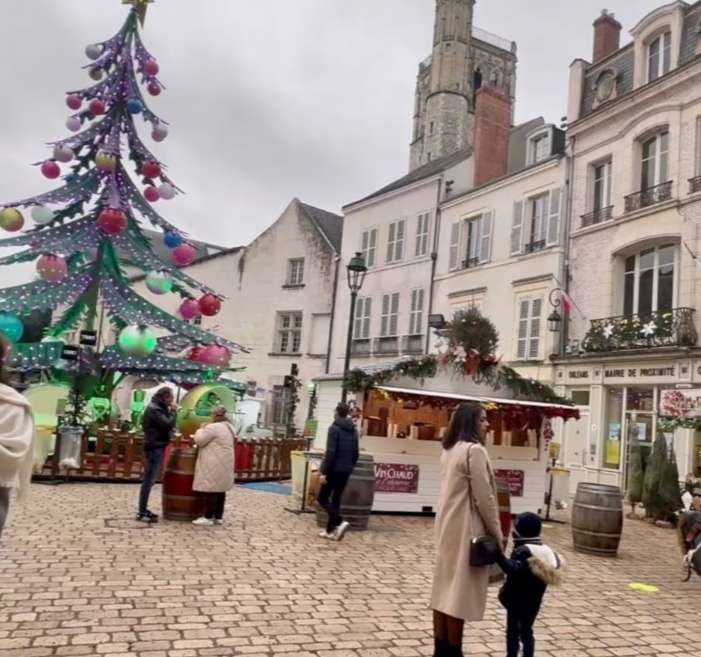Syrian Refugee Return Preferences: A European Perspective
Nabil Attar, a former Syrian businessman, now meticulously garnishes a plate of mutabal, a traditional roasted eggplant dip, in his Orleans, France restaurant, Narenj. The aroma of stuffed grape leaves fills the air as lunchtime approaches. This culinary scene is a stark contrast to Attar’s previous life in Damascus, where he managed electronic fund transfers. His trajectory shifted dramatically almost a decade ago when his son was kidnapped by the Assad regime. The harrowing experience of paying a hefty ransom to secure his son’s release forced Attar to re-evaluate his life and future. In 2015, amidst the escalating Syrian war, Attar and his family sought refuge in Europe, eventually finding solace in Orleans, a city steeped in history and known for its connection to Joan of Arc.
The recent news of Assad’s downfall has resonated deeply within Attar, evoking a sense of disbelief and liberation. The prospect of a Syria free from Assad’s rule seemed unimaginable just a short time ago. However, this newfound freedom hasn’t necessarily translated into a desire to return to his homeland. Life in France has woven its charm around Attar and his family. The tranquility and cultural richness of Orleans have provided a sense of stability and belonging, a stark contrast to the turmoil and uncertainty that still grips Syria. He has found a new rhythm of life, a new purpose, and a new community. The allure of French life, with its distinct “elan” and “joie de vivre,” has taken root, making a return to Syria less appealing.
The political landscape surrounding Syrian refugees is complex and evolving. Assad’s ouster has sparked discussions across Europe about asylum policies. Countries like Germany and Austria are contemplating revisions to their existing policies, including the possibility of offering financial incentives to encourage Syrian refugees to return. France, while hosting a comparatively smaller Syrian refugee population of around 30,000, is also witnessing a shift in public opinion. Recent polls indicate growing support for suspending new asylum claims, reflecting a hardening stance towards refugees. This changing political climate has introduced a new layer of uncertainty for Syrian refugees seeking safety and stability in Europe.
The prospect of returning to Syria is fraught with anxieties for many refugees. Olivia Sundberg Diez of Amnesty International highlights the volatile and unpredictable nature of the situation in Syria, emphasizing the dangers that persist. Human rights advocates like Will Todman caution against hasty repatriation efforts, stressing the importance of a carefully managed transition period to ensure the safety and well-being of returning refugees. The current situation in Syria, marked by ongoing conflict, a fragile political landscape, and widespread destruction, raises serious concerns about the feasibility of safe and sustainable returns.
Within the Syrian refugee community in Orleans, the debate about returning home resonates deeply. Ramez Ghadri, a gynecologist, expresses apprehension about the future of Syria under new leadership, characterizing them as extremists. Ehad Naily, a human rights lawyer, underscores the challenges posed by Syria’s devastated infrastructure and persistent ethnic tensions, arguing that these factors make the country unsuitable for safe returns. The destruction wrought by years of war has left deep scars on Syria’s physical and social fabric, creating significant obstacles to rebuilding lives and communities. The concerns raised by Ghadri and Naily reflect the complex realities on the ground and the significant challenges that lie ahead for Syria.
Attar, while maintaining optimism about Syria’s future, acknowledges that his life is now firmly rooted in France. Since receiving asylum, he has embraced the opportunity to learn the restaurant business, culminating in the opening of Narenj in 2018. His restaurant has become a local favorite, drawing praise from patrons like Sophie Martinet, his former French teacher, who admire his culinary skills and resilience. The success of Narenj is a testament to Attar’s adaptability and determination to build a new life for himself and his family in France. While he cherishes the possibility of visiting Syria to reconnect with family and friends, his long-term plans remain centered on his life in France. He recognizes the stability and opportunities that France offers, and he is committed to building a future for himself and his family in their adopted home. The warmth and support of the local community have played a crucial role in his integration and have reinforced his sense of belonging in Orleans.
The fate of the ousted President Assad remains uncertain, with rumors swirling about his potential relocation to Moscow or the UK. The UK, already grappling with a substantial Syrian refugee population, faces the added complication of Mrs. Assad’s British citizenship. Foreign Secretary David Lammy has even raised the possibility of revoking her citizenship, highlighting the delicate political considerations surrounding the Assad family. The UK’s decision to suspend Syrian asylum applications further underscores the anxieties surrounding the potential for another wave of refugees fleeing the ongoing instability in Syria. The unfolding situation in Syria and the fate of its former leader continue to generate complex political and humanitarian challenges for countries around the world.
Share this content:












Post Comment